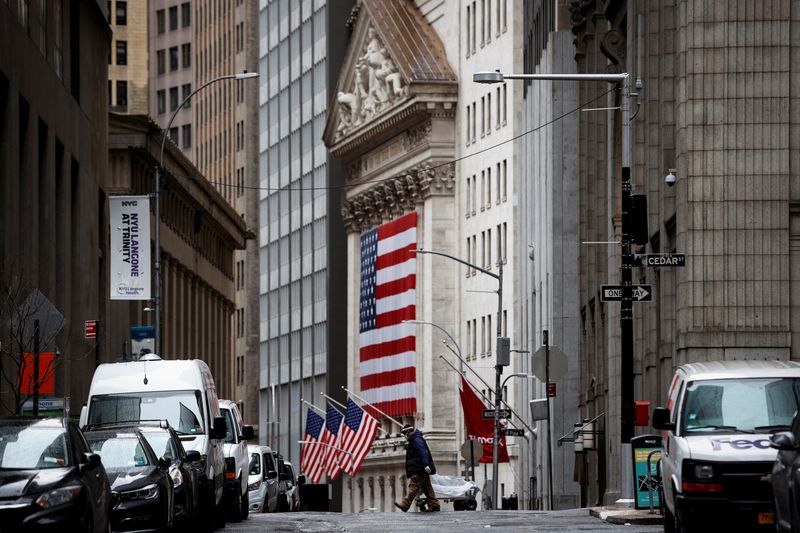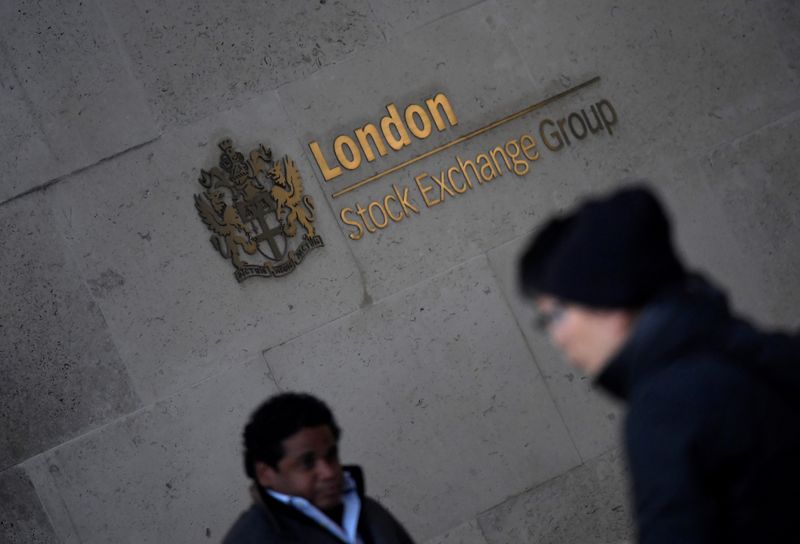NEW YORK/LONDON (Reuters) – Global equities slid on Thursday on concerns about the long-term impact of the new coronavirus and resurgent U.S.-China tensions, though oil markets ignored those worries and marched to 2-1/2 month highs.
European equities <.FTEU3><.STOXX> fell about 0.8%, while the S&P 500 and Nasdaq on Wall Street declined about the same.
The dollar edged higher as investors weighed the impact of global business lockdowns and the euro’s four-day rally against the U.S. currency ran out of steam. The strong dollar pushed gold down more than 1%, off this week’s 7-1/2 year peak.
Rising tensions between Washington and Beijing raised doubts about the “Phase 1” trade deal reached early this year and also supported the safe-haven dollar.
President Donald Trump warned the United States would react “very strongly” against China trying to gain more control over Hong Kong through new national security legislation. Tension between the two countries has heightened in recent weeks, as they exchange accusations on the handling of the coronavirus pandemic.
“The biggest threat to the U.S. market this year is actually the potential for ignition of the tariff war, between the U.S. and China,” said Kristina Hooper, chief global market strategist at Invesco in New York.
MSCI’s gauge of stocks across the globe <.MIWD00000PUS> shed 0.76%, while the pan-European STOXX 600 index <.STOXX> lost 0.75%.
On Wall Street, the Dow Jones Industrial Average <.DJI> fell 101.78 points, or 0.41%, to 24,474.12. The S&P 500 <.SPX> lost 23.1 points, or 0.78%, to 2,948.51 and the Nasdaq Composite <.IXIC> dropped 90.90 points, or 0.97%, to 9,284.88.
Purchasing manager index surveys (PMIs) in Europe confirmed economic activity has begun to return, though they were far from stellar.
Euro zone-wide figures came in better than expected overall but Germany’s improvement undershot forecasts. It was the third month in a row that the surveys were plonked firmly in economic contraction territory.
Oil rose on the view that fuel demand should rebound. Brent, the international benchmark, has bounced up $20 a barrel over the past month.
U.S. crude futures <CLc1> rose 43 cents to settle at $33.92 a barrel, while Brent <LCOc1> settled up 31 cents at $36.06 a barrel.
The market absorbed the latest glut of government debt to pay for coronavirus support programs fairly smoothly. The United States on Wednesday auctioned $20 billion of 20-year debt, the first such sale since 1986.
Italy sold roughly the same on Thursday and Spain said it will need to raise almost 100 billion euros more than planned.
The benchmark U.S. 10-year notes <US10YT=RR> fell 0.4 basis points to yield 0.6753%.
U.S. weekly jobless claims came in at a seasonally adjusted 2.4 million, in line with a Reuters survey of economists ahead of the data and well off the record 6.867 million at the end of March.
The dollar index <=USD> rose 0.287%, with the euro <EUR=> down 0.31% to $1.0943. The Japanese yen weakened 0.05% versus the greenback at 107.60 per dollar.
U.S. gold futures <GCv1> settled 1.7% lower at $1,721.90 an ounce.
(Reporting by Herbert Lash; Editing by David Gregorio, Andrea Ricci and Sonya Hepinstall)


















